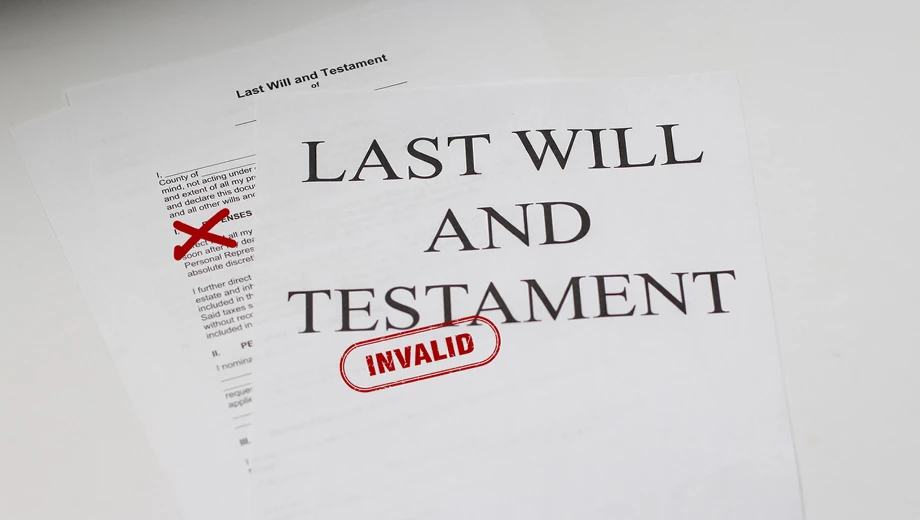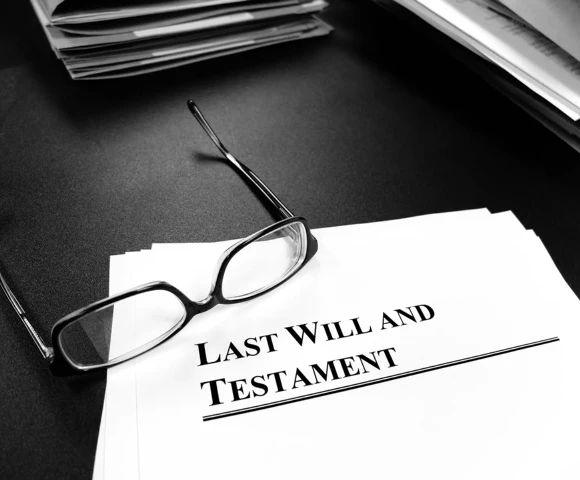- Capital Legacy
- June 5, 2023
Mistakes to avoid when drafting your will
Creating a will is an essential part of estate planning. It is a legal document allowing you to distribute your assets according to your wishes and specify your wishes concerning guardianship for minor children.

However, creating a will can be a complicated process, and there are several mistakes that you need to avoid, ensuring that your wishes are carried out correctly. Also, there are some factors which could invalidate your last will and testament.
There are some musts and may nots you should know about.
If the musts are not done, the last will and testament will be invalid and if the may nots are done, it could also be declared null and void.
The musts! Do these things!
- All last wills and testaments must be in writing. This means that a will must be typed out or even handwritten. We don’t suggest handwritten though as legibility can often be a problem.
- You must sign every page of your will otherwise it will not be recognised as the the most recent version. Unsigned wills are a big problem as the testator thinks they have done the job but the will gets rejected.
- Signatures must be wet ink signatures meaning the signatures must be done with pen and ink on a physical piece of paper. Digital signatures are not allowed.
- Any competent person may draft a last will and testament if they are 16 years and older. Competent means that the testator/testatrix must have the sufficient mental capacity to understand the nature and effect of the testamentary act. Testator/testatrix is the legal name for the person whose wishes are expressed in the will.
- Your signature must be made in the presence of two or more competent witnesses.
Last wills and testaments should be dated to avoid confusion in case another will is found. It will also give more clarity if the pages of last wills and testaments are numbered.
A relatively unknown and interesting fact is that any person of 14 years and older and sound of mind is allowed to sign a last will and testament as a witness.
May nots and do nots! Don’t do these things!
- If you sign as a witness, you may not benefit from the will at all. You are also prohibited from being appointed as an executor, administrator, trustee, or guardian. If you are, the nomination will be void.
- Wills may not contain any illegal, unethical, or immoral provisions.
- You may not disinherit minor children. Children’s well-being is always put first as far as last wills and testaments are concerned. If there are enough assets and/or liquidity in the last will and testament, it must provide adequately for the maintenance and education of the testator’s children. If it does not, the will could be declared invalid.
- Even if a child was disinherited it does not deprive them from claiming against the deceased estate. The duty of a parent to support their children does not terminate upon the parent’s death. Children over the age of 18 will have to prove that they are unable to support themselves. A child’s maintenance claim ranks above all other claims against the estate except for debts owed to creditors of the estate.
- It stands to reason that a last will and testament may not be a forgery. A last will and testament may also be declared null and void if the document is genuine, but the signature that should have been the testator’s, was forged.
- The expression of a testator’s last wishes may not be coerced. If the last will and testament is not a result of the testator’s own free will, the last will and testament will also be declared null and void. This is hard to prove and is often the departure point for feuding families who contest the contents of a will.
- A beneficiary may not be an unworthy person. They will be excluded from a last will and testament if they are an unworthy person. An example of an unworthy beneficiary is a person who tried to defraud his or her co-beneficiaries of their rightful inheritance.
Do not forget to update your will regularly. Life changes constantly, and so do your assets and priorities. If you've recently had a child, got married or divorced, bought, or sold a home or business, or experienced any other significant life event, you need to update your will to reflect these changes.
If you do not update your will regularly, you run the risk of your assets not being distributed as you intended. Your family members could end up in a legal battle over their inheritance, which can be costly and emotionally draining.
Do not choose the wrong executor. The executor of your will is responsible for carrying out your wishes after you die. This person will be responsible for paying your debts, distributing your assets, and managing any other matters related to your estate. Choosing the wrong executor can lead to problems.
For example, if you choose someone who is not capable of managing the responsibilities, your estate could end up in chaos. Alternatively, if you choose someone who has a conflict of interest, such as a family member who is also a beneficiary, this could lead to invalidating the will or legal issues.
Do not fail to be specific about beneficiaries. When drafting your will, it's essential to be specific about who you want to receive your assets. Failing to be specific can lead to confusion and legal battles.
For example, if you simply state that you want your assets to be distributed among your children, this could cause problems if you have stepchildren or children from previous marriages. Similarly, if you have specific wishes for how your assets should be distributed, such as a charity you want to support, you need to be clear about this in your will.
When considering the potential pitfalls and the importance of your will, it makes sense to speak to your financial advisor about your will or make use of the experts at Capital Legacy to draw up your last will and testament free of charge.
Whether you’re in need of a
will, life insurance, education
cover,
or the power of all three, we have got you covered.


